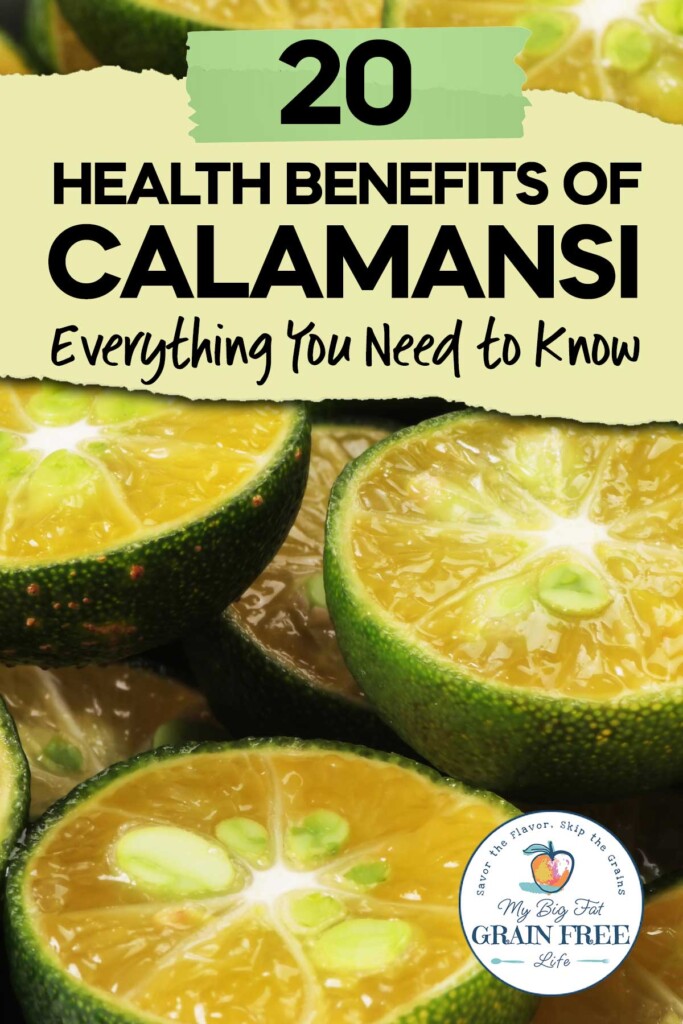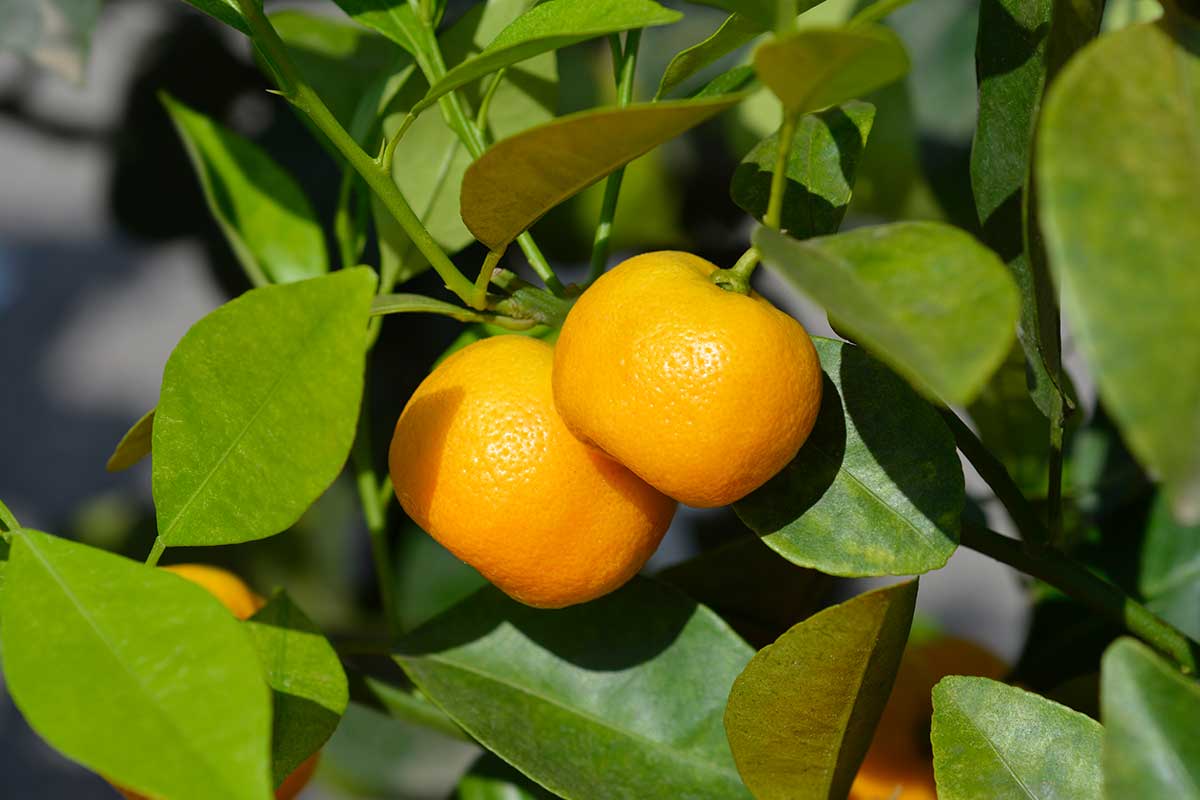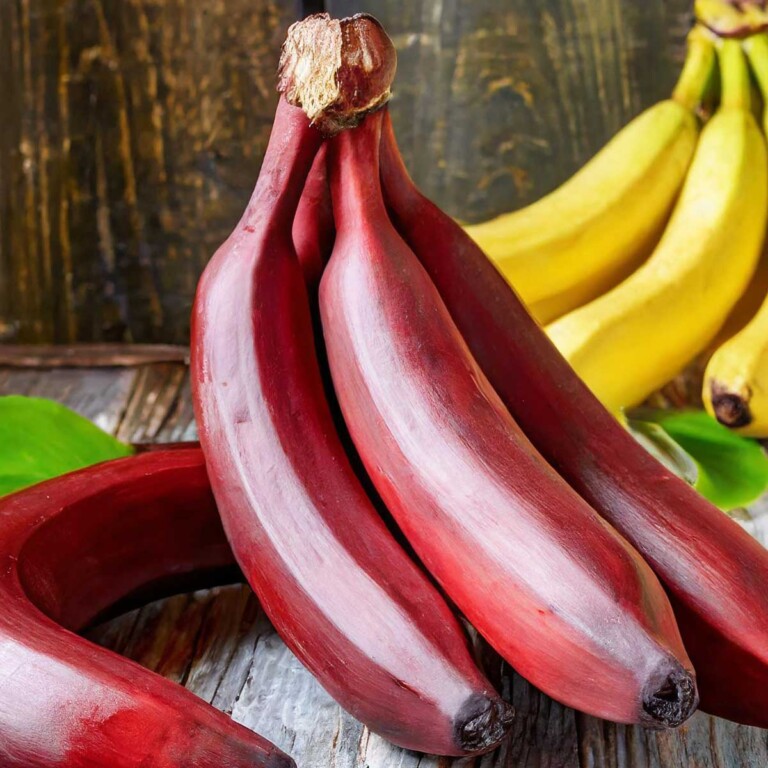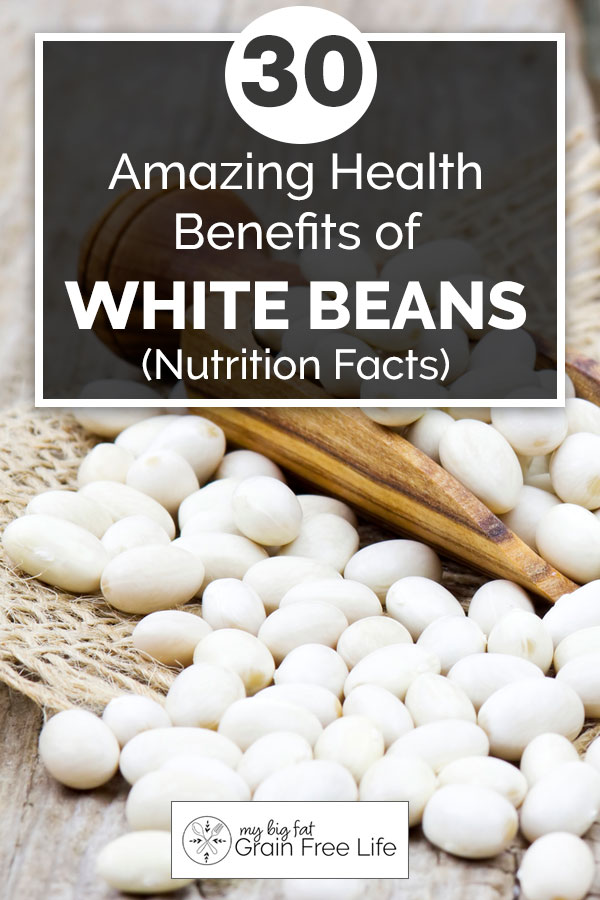20 Health Benefits of Calamansi: Everything You Need to Know
This post may contain affiliate links. If you make purchase after clicking a link, I may receive a commission at no extra cost to you.
Last Updated on November 27, 2023
Have you ever had a calamansi? This small citrus fruit has a unique flavor profile with high levels of vitamin C. Learn about the impressive health benefits of calamansi fruit and why you should consider adding it to your diet.

Calamansi Benefits
Incorporating calamansi (Citrofortunella microcarpa) into your diet can provide numerous benefits due to its nutritional profile and refreshing taste. Whether you use it in marinades, vinaigrettes, beverages or desserts, these small citrus fruits are sure to elevate your culinary creations while boosting your health.
Before we get into the health benefits of calamansi, let’s take a look at what exactly this fruit is.
What Is Calamansi?
Calamansi is a citrus fruit that originates from parts of Asia, particularly the Philippines. The calamansi tree produces a small, round fruit that resembles a miniature orange or lime.
The rind of calamansi is thin and smooth, with a green color when unripe, transitioning to a bright orange hue when fully ripe.
Also known as Philippine lime or golden lime, calamansi has several other names in different regions. Some of these names include:
- Calamondin
- Kalamunding
- Calamandarin
- Limau kasturi (in Malaysia)
- Panasuan (in Indonesia)
- Kalamasi (in the Philippines)

How Does Calamansi Taste?
Calamansi has the tartness of a lime or lemon, but with a slightly sweeter and more floral undertone.
Calamansi Nutrition
Despite its small size, calamansi has a lot of beneficial nutrients. It is rich in vitamin C and antioxidants, which are essential for supporting the immune system and fighting against free radicals in the body.
The Nutritional Value Of Calamansi
- Vitamin C: Calamansi is known for its high vitamin C content. Vitamin C is an essential nutrient that acts as an antioxidant, supporting the immune system, promoting collagen production, and aiding in wound healing.
- Potassium: Calamansi contains potassium, which is a mineral that helps regulate fluid balance, muscle contractions, and nerve signals.
- Calcium: Calamansi also provides a small amount of calcium, which is crucial for strong bones and teeth. Calcium plays a role in muscle function and nerve transmission as well.
- Vitamin A: This citrus fruit contains vitamin A, which is important for vision health, cell growth, and immune function. It also has antioxidant properties that help protect the body against free radicals.
- Iron: Calamansi contains iron, a mineral necessary for the production of red blood cells and oxygen transport throughout the body. Iron plays a key role in energy metabolism as well.
- Phosphorus: Another mineral found in calamansi is phosphorus. Phosphorus works together with calcium to maintain healthy bones and teeth. It also plays a vital role in energy production and cell repair.

Health Benefits Of Calamansi
Adding this sour fruit to your diet can provide numerous health benefits due to its high vitamin C content, essential minerals, and dietary fiber.
Here’s 20 different impressive health benefits of calamansi.
Helps Boosts Immunity
Calamansi is rich in vitamin C, which helps strengthen immune system function and protects the body against common illnesses.
May Aid Digestion
The natural acids present in calamansi can aid the digestive system by promoting the production of digestive enzymes and improving overall gut health.
Promotes Weight Loss
Calamansi has low calorie and fat content, a passive fat-burning effect, and can speed up metabolism through its high citric acid content. It also contains fiber, which promotes satiety and prevents overeating.
Enhances Skin Health
The high vitamin C content in calamansi fruit juice contributes to collagen synthesis, improving skin elasticity and promoting a healthy complexion.
May Support Heart Health
Calamansi contains potassium, which helps regulate blood pressure and maintain heart health. It also reduces the risk of cardiovascular diseases.
Helps Fights Inflammation
The antioxidants and anti-inflammatory properties present in calamansi help reduce inflammation in the body, preventing metabolic syndrome and chronic diseases such as arthritis and heart disease.
Improves Eye Health
Calamansi is a good source of vitamin A, which is essential for maintaining good vision and preventing age-related macular degeneration.
Aids in Detoxification
The powerful detoxifying agent found in calamansi helps eliminate toxins from the body, aiding in liver function and overall detoxification processes.
Helps Strengthen Bones
Calamansi contains minerals like calcium and phosphorus that are vital for maintaining strong bones and preventing conditions like osteoporosis.
May Lower Cholesterol Levels
Consuming calamansi regularly can help control cholesterol levels by lowering bad cholesterol (LDL) levels. This is due to its high content of flavonoids that promote healthy cholesterol balance.
Helps Regulate Blood Sugar Levels
Calamansi has a low glycemic index, making it suitable for individuals with diabetes as it helps regulate blood sugar levels.
Potential to Reduce Risk of Cancer
The antioxidants found in calamansi have been shown to inhibit the growth of cancer cells and reduce the risk of certain types of cancer, such as breast and lung cancer.
May Improve Respiratory Health
The antibacterial properties of calamansi can help alleviate respiratory infections and conditions like coughs, colds, and asthma by reducing inflammation in the airways.
Boosts Energy Levels
Calamansi is a natural energy booster due to its high vitamin C content, which helps improve iron absorption and combat fatigue.
Supports Oral Health
The antibacterial properties of calamansi can help fight oral bacteria, prevent tooth decay, and promote healthy gums.
Can Help Alleviate Stress
Consuming calamansi or using its essential oils can have a calming effect on the mind and body, helping reduce stress and anxiety levels.
May Enhance Brain Function
The antioxidants in calamansi protect brain cells from oxidative stress, improving cognitive function and memory retention.
Promotes Hair Health
Applying fresh juice to the scalp helps control dandruff, nourishes hair follicles, and promotes healthy hair growth.
Helps Relieve Joint Pain
Calamansi contains anti-inflammatory compounds that can help reduce joint pain caused by conditions like arthritis or gout.
Hydrates the Body
Calamansi is a natural hydrator due to its high water content, making it an excellent choice for quenching thirst and maintaining proper hydration levels. It can increase the health benefits of fruit-infused water.
Other Unique Fruits You Might Be Interested In:
- Snake Fruit
- Yellow Watermelon
- Quince Fruit
- Calamansi
- Pineberries
- Yuzu Fruit
- Clementine vs Mandarin vs Tangerine
- Rambutan
- Red Bananas
- Sapote
Where to Find Calamansi
You can buy calamansi at most Asian grocery stores or online markets that specialize in tropical fruits. Calamansi is primarily grown in Southeast Asia, so it may be more readily available in countries like the Philippines, Indonesia, and Thailand.
When Is Calamansi in Season?
Calamansi is typically harvested year-round. However, there may be slight variations depending on the specific region where it is grown. In general, you should be able to find calamansi throughout the year without much difficulty.
How To Select Calamansi
To select the best calamansi, look for fruits that are firm to the touch and have smooth skin without any blemishes or soft spots. The ideal calamansi should feel heavy for its size, indicating juiciness. Avoid fruits that appear wrinkled or discolored as they may be past their prime.
How to Store Calamansi
Learning how to store citrus is essential for keeping it fresh for when you are ready to use it.
It’s best to store calamansi in a cool and dry place. They can be stored at room temperature for a few days if you plan to use them soon. If you want to extend their shelf life, you can refrigerate them in a plastic bag or container for up to two weeks.
Alternatively, you can also freeze calamansi juice by squeezing the fruit and storing the juice in an airtight container or ice cube trays for longer-term storage.
How To Tell When Calamansi Is Ripe
Determining the ripeness of calamansi can be done by assessing both its color and texture. Ripe calamansis will have an orange hue instead of green and will yield slightly to gentle pressure when squeezed. You should also be able to smell them when held close to your nose.

Uses of Calamansi Fruit
Besides consuming calamansi fruit as a food or juice, there are other ways you can reap the nutritional benefits, such as using the juice for your skin and hair! Here are some basic uses for calamansi fruit.
- Culinary Uses: Calamansi fruit is commonly used in cooking and can be squeezed to extract its tropical juice. It adds a tangy and citrusy flavor to dishes, sauces, marinades, and beverages. You can mix calamansi juice, soy sauce or coconut aminos, fresh ginger, minced garlic, and onion powder for a tasty dip for sushi.
- Natural Cleanser: The acidic nature of calamansi juice makes it an effective natural cleanser and natural bleaching agentfor removing stains from clothes, countertops, and kitchen utensils.
- Skin Brightening: Calamansi juice can be applied topically to the skin to help lighten dark spots, blemishes, and acne scars. It contains vitamin C which helps in brightening the complexion.
- Hair Care: The acidity of calamansi juice helps balance the pH level of the scalp, reducing dandruff and promoting healthy hair growth. It can be used as a natural hair rinse or added to shampoo.
- Immune Booster: Calamansi fruit is rich in vitamin C, which helps strengthen the immune system and fight off common colds and infections.
- Digestive Aid: Consuming calamansi juice can aid digestion by stimulating the production of digestive enzymes and promoting healthy gut flora.
- Sore Throat Relief: Gargling with warm calamansi juice mixed with water can help soothe a sore throat due to its antibacterial properties.
- Antioxidant Powerhouse: Calamansi fruit is packed with antioxidants that protect our cells from damage caused by the negative effects of free radicals.
- Weight Loss Aid: Drinking calamansi juice on an empty stomach in the morning may help boost metabolism and aid in weight loss.
- Natural Deodorizer: The refreshing scent of calamansi can be utilized as a natural deodorizer for eliminating unpleasant odors in refrigerators or rooms.
Calamansi Juice
Do you enjoy drinking lemonade? A glass of calamansi juice has a very similar taste, and when you make it with a natural sweetener, like raw honey, you can enjoy a refreshing drink loaded with all the health benefits of calamansi fruit.
The health benefits of calamansi juice make it a great option for a fresh drink in the summertime!

How To Make Calamansi Juice
- 10-12 calamansi fruits
- 2 tablespoons of raw honey
- 2 cups of water
- Ice cubes (optional)
Steps To Make Calamansi Juice
- Wash the calamansi fruits thoroughly to remove any dirt or impurities.
- Cut each calamansi fruit in half and extract the juice by squeezing it into a bowl. Remove any seeds that may fall into the juice.
- In a separate pitcher, add two cups of water.
- Add the freshly squeezed calamansi juice to the pitcher with water.
- Mix well using a spoon until the juice is well combined with the water.
- Add two tablespoons of raw honey to the mixture and stir until it dissolves completely.
- If desired, you can add ice cubes to make the juice refreshing and chilled.
Possible Side Effects Of Calamansi Juice
While calamansi juice is generally safe for consumption, some individuals may experience certain side effects, including:
- Allergic reactions: Some people may be allergic to calamansi fruit or its components. Allergic reactions may include itching, swelling, hives, or difficulty breathing. If you experience any allergic symptoms after consuming calamansi juice, discontinue use immediately and seek medical attention.
- Tooth enamel erosion: Calamansi juice is acidic in nature and regular consumption without proper oral hygiene practices may lead to tooth enamel erosion over time. It is recommended to rinse your mouth with water after consuming calamansi juice or brush your teeth afterwards.
- Digestive issues: Consuming excessive amounts of calamansi juice may cause stomach upset, diarrhea, or gastrointestinal discomfort in some individuals.
- Photosensitivity: Calamansi contains psoralens, which can make your skin more sensitive to sunlight and increase the risk of sunburn or skin irritation. If you are prone to sunburn, it is recommended to use sunscreen or limit your exposure to direct sunlight after consuming calamansi juice.
It is always advisable to consult with a healthcare professional or nutritionist before making significant changes to your diet, especially if you have any underlying medical conditions or are taking medication that may interact with the ingredients in calamansi juice.
Frequently Asked Questions About Calamansi
Can You Eat Calamansi Whole?
Calamansi can be eaten whole. The skin of calamansi is thin and edible, so you can consume the entire fruit.
Can You Eat Unripe Calamansi?
While you can eat calamansi when it’s unripened, keep in mind that unripe calamansi may have a more tart and sour taste compared to the ripe ones.
What Does A Calamansi Taste Like?
Calamansi has a unique taste that is both sour and slightly sweet. It is often described as a combination of lime and mandarin orange flavors.
What Is The English Name For Calamansi?
The English name for calamansi is calamondin.
What Is The Closest Fruit To Calamansi?
The closest fruit to calamansi is the kumquat. While they are not exactly the same, kumquats have a similar size and appearance to calamansi.
How Do You Eat Calamansi?
To eat calamansi, you can either squeeze its juice into your recipes or cut it into wedges and use them as a garnish or flavor enhancer in various dishes and beverages.
Is Calamansi A Superfood?
While calamansi offers several health benefits, it is not classified as a superfood. However, it can be a nutritious addition to a well-balanced diet.
How Long Does Calamansi Last In The Fridge?
When stored properly in the refrigerator, fresh calamansi can last for about 1-2 weeks. It is best to keep them in an airtight container or plastic bag to maintain their freshness.
Final Thoughts On Calamansi
Incorporating calamansi into your diet can provide numerous health benefits and contribute to your overall well-being. So why not embrace this citrus powerhouse and enjoy its refreshing taste while reaping its many advantages?
Sources
- https://pubmed.ncbi.nlm.nih.gov/34796504/
- https://pubmed.ncbi.nlm.nih.gov/23107680/
- https://pubmed.ncbi.nlm.nih.gov/32859257/
- https://www.ncbi.nlm.nih.gov/pmc/articles/PMC7809489/
- https://www.ncbi.nlm.nih.gov/pmc/articles/PMC10146261/
- https://www.metnu.com/food/nutrition/calamansi~br114/
- https://fruitsandveggies.org/expert-advice/nutritional-content-calamondin-fruit/








